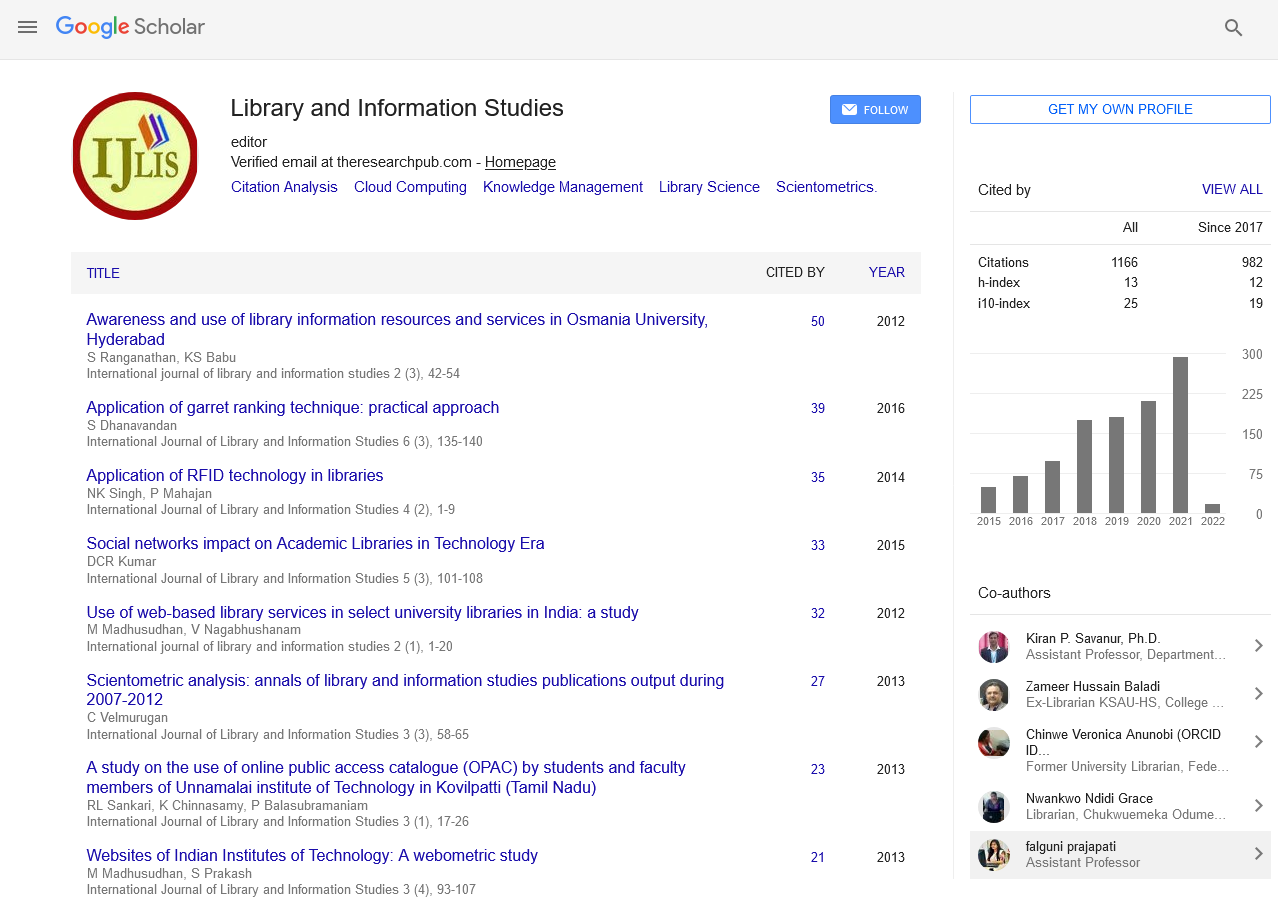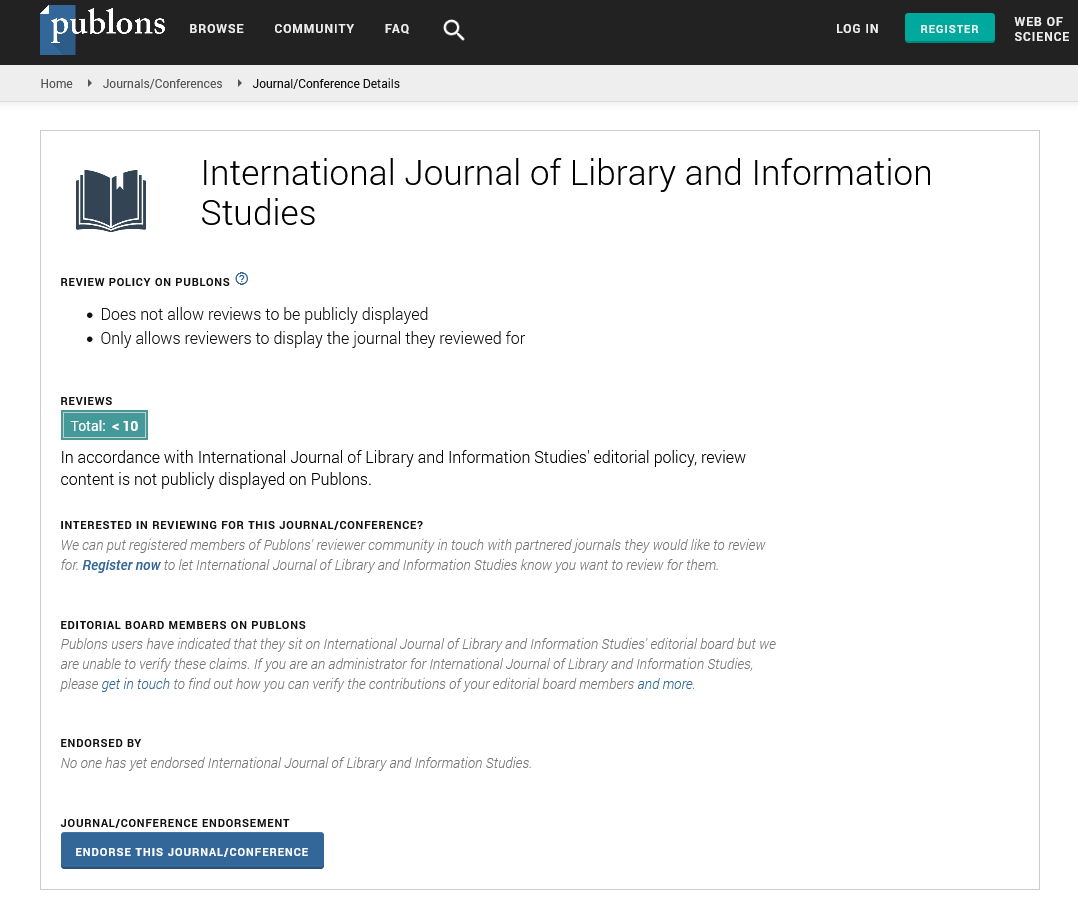

Social Networking Technologies in Libraries and the role of Librarians as agent for Repositioning Nigerian Education
Abstract
Author(s): John, Henry Chukwudi, Egbeyemi, Taiwo Abdulazeez, Oniyide, Funmilayo Deborah
The introduction of social network as a medium of communication on the Internet, followed by its widely acceptance by users, its viability, integration and penetration into different spheres of human endeavor gives it high popularity among other means of information communication and dissemination. Enterprises that embedded social media in their productions, processes and marketing (blogs, forums, wikis, and communities) are realizing the potential of these circles in improving their productivity and efficiency. Social networking is a social structure that lets the user interact and work collaboratively with other users, including the ability to browse, search, invite friends to connect and interact with web world. Social networking technologies in the web 2.0 have enhanced teaching and learning process within and outside the four walls of the classroom. Thereby making librarians as an agent for repositioning the educational system of the country. In this paper, the authors has intended to describe the possible implications of social networking technologies in the field of library and information services in the web 2.0 milieu. In addition, an attempt has been made to illustrate different social software tools and their effective utilization in the social networking environment. Finally, the author has cited some stunning examples of library being run in the world using the web 2.0 technologies, and recommending possible ways to enhance service delivery in the library using social networking technologies.
Call for Papers
Authors can contribute papers on
What is Your ORCID
Register for the persistent digital identifier that distinguishes you from every other researcher.
Social Bookmarking
Know Your Citation Style
American Psychological Association (APA)
Modern Language Association (MLA)
American Anthropological Association (AAA)
Society for American Archaeology
American Antiquity Citation Style
American Medical Association (AMA)
American Political Science Association(APSA)



